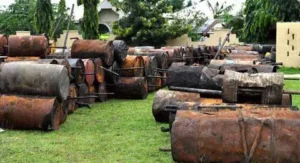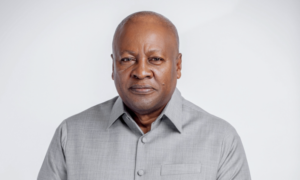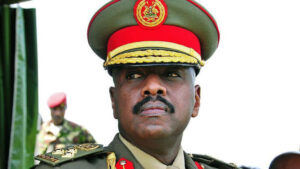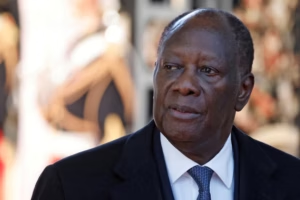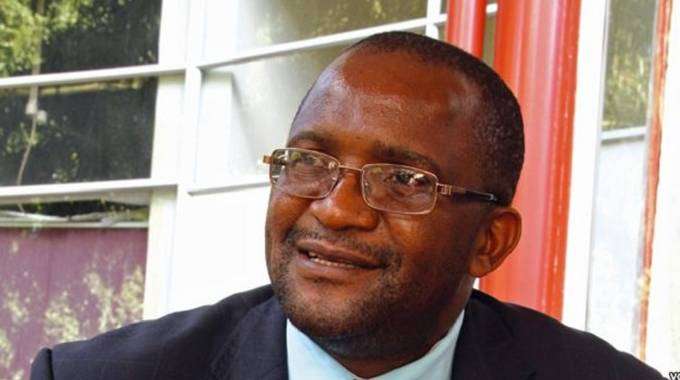
Zimbabwe’s opposition MDC-T leader Douglas Mwonzora has attempted to delay the country’s polls by challenging the delimitation report at the courts on the premise that it is a flawed and unconstitutional document.
Zimbabwe’s opposition MDC-T leader Douglas Mwonzora has attempted to delay the country’s polls by challenging the delimitation report at the courts on the premise that it is a flawed and unconstitutional document.
But his bid flopped on 8 May after the country’s Constitutional Court quashed it for lack of merit.
The country’s elections are expected in July or August. Different legal experts and election think tanks have poked holes in the delimitation report, saying the formula used by the Zimbabwe Electoral Commission (ZEC) for variations in voter numbers is wrong, while it also failed to take into account the country’s census figures.
In an interview, Mwonzora tells The Africa Report that he is not satisfied with the Constitutional Court ruling.
He says he will now take the matter to the High Court as Zimbabwe’s elections cannot be free and fair without a valid delimitation report.
The report was gazetted in February this year, setting out the new electoral boundaries or constituencies. Election watchdogs feel that a flawed delimitation report can result in rigged polls.
A presidential candidate for MDC-T in Zimbabwe’s elections, Mwonzora was represented in the case by constitutional lawyer Lovemore Madhuku, who is the leader of the National Constitutional Assembly (NCA) and is also a presidential candidate.
Mwonzora says that the reason Chief Justice Luke Malaba gave him for dismissing his application was that the Constitutional Court has no jurisdiction over the matter.
“Our case was not decided on its merits as the Constitutional Court simply decided not to hear it. There was a clear indication by the court led by Chief Justice Malaba not to hear the merits of the case. Our case is really strong on the merits,†he says.
After meeting with the MDC-T Standing Committee after the application was dismissed, he says the party will re-file with the High Court.
“We will not rest until electoral justice is done,†says Mwonzora.
The MDC-T leader says the ZEC delimitation report to be used during Zimbabwe’s August elections has four fundamental flaws.
“First, the delimitation report did not consider the population and its distribution in the country from the census report. Although Zimbabwe had its population census last year, the census results are not yet out.
“Secondly, Zimbabwe’s constitution says there must be an equal number of registered voters in each constituency or ward. A variation of a maximum of 20% is allowed. However, in 119 out of the 210 constituencies, ZEC had a variation of more than 20%. In 598 wards, this rule was also violated.â€
Thirdly, Mwonzora says the ZEC delimitation report has polling stations that are described by codes and not by names that can be understood by ordinary people.
“Fourthly, the gazette and proclamation of the delimitation were wrong. Contrary to the law, when proclaiming the delimitation report, President Emmerson Mnangagwa did not declare names and boundaries of constituencies and wards.â€
The rights to a free and fair election will be violated if Zimbabwe’s August elections go ahead using the ZEC delimitation report, Mwonzora says.
“The Constitutional Court said I should have argued on the fact that the delimitation report was invalid or that my rights to free and fair elections were violated and not both as I had done. I had argued that an invalid delimitation report affects my rights, and my political party’s rights to free and fair elections.â€
In June 2021, Zimbabwe’s media reported that Mwonzora’s party was plotting to stop elections and wanted them suspended indefinitely in fear of losing dismally to the Citizens Coalition for Change (CCC) party led by Nelson Chamisa, which he has tried to destroy with the help of the ruling Zanu-PF party.
Mwonzora recalled more than 40 members of parliament and more than 80 councillors affiliated with the MDC Alliance then led by Chamisa since 2020.
This resulted in Chamisa forming the CCC party to outfox Mwonzora and Zanu-PF’s bid to totally annihilate him from Zimbabwean politics.
Most of the legislators recalled by Mwonzora were women under the proportional representation quota. Since proportional representation legislators are not elected, Mwonzora easily replaced them with his party members that are now in parliament.
MDC-T party failed to win a single seat out of the remaining 28 parliamentary seats that were contested during the 26 March by-elections. The CCC went on to win 19 out of the 28 seats and the rest went to the ruling Zanu-PF party. The CCC also won 75 of the 122 municipality seats, while the remainder went to Zanu-PF.
Critics feel that Mwonzora’s Constitutional Court application is another plot to stop Zimbabwe’s August elections.
But Mwonzora denies that he wants to stop the elections.
“Contrary to what many people have said in trying to spite my application, I never applied for the postponement of elections,†Mwonzora says.
“I applied for an order that the delimitation report be nullified and that the ZEC must be ordered to redo the delimitation report. President Mnangagwa must only proclaim election dates upon receipt of a valid delimitation report,†he says.
“In our view as the MDC-T, what is more important for the country is to have free and fair elections than to adhere to a timetable even at the expense of the freeness and fairness of the election,†Mwonzora says.
Mnangagwa is yet to proclaim election dates.


